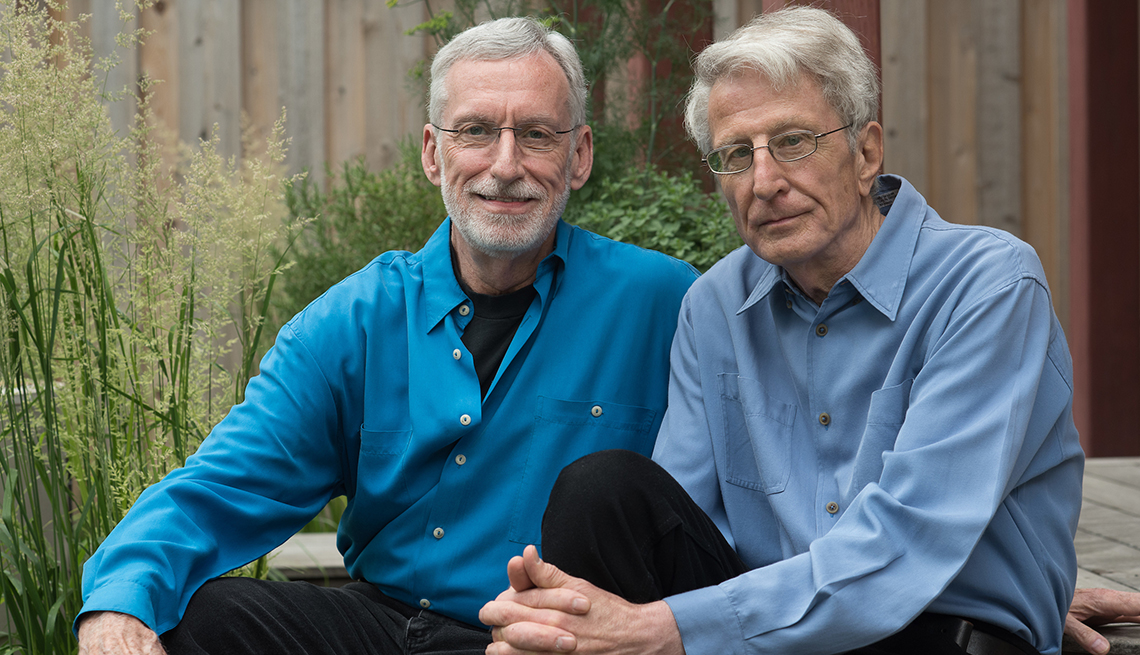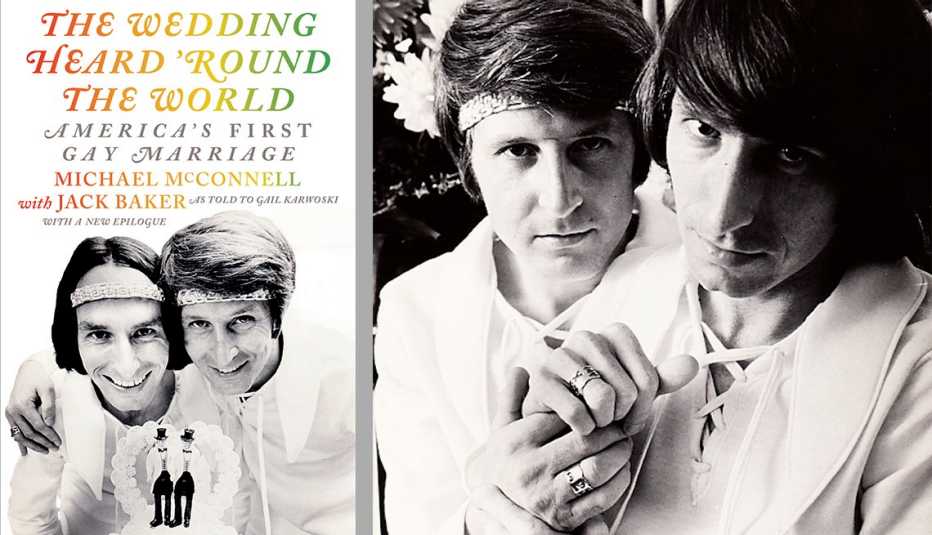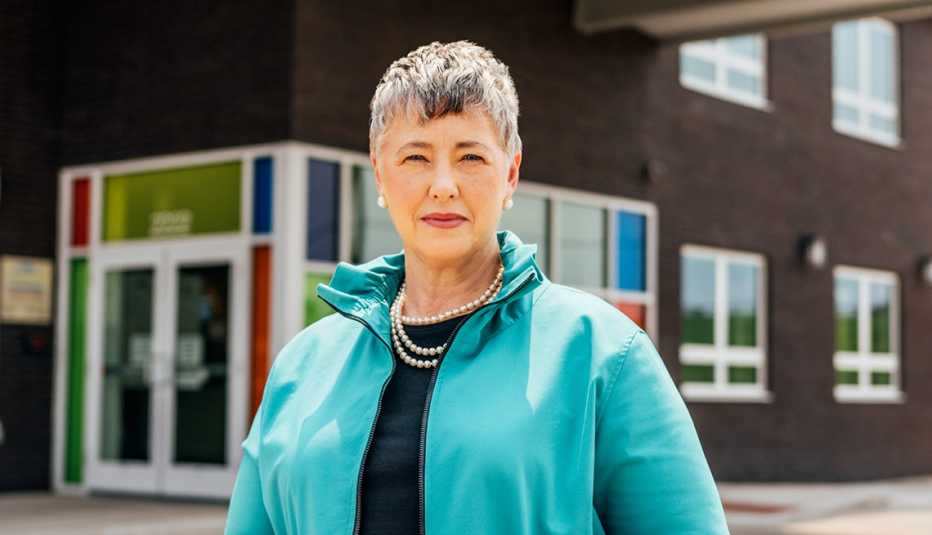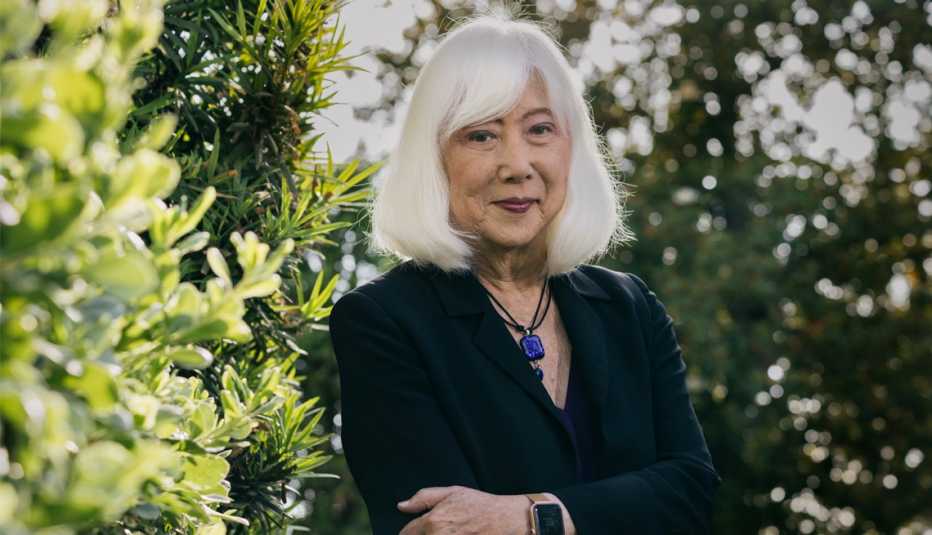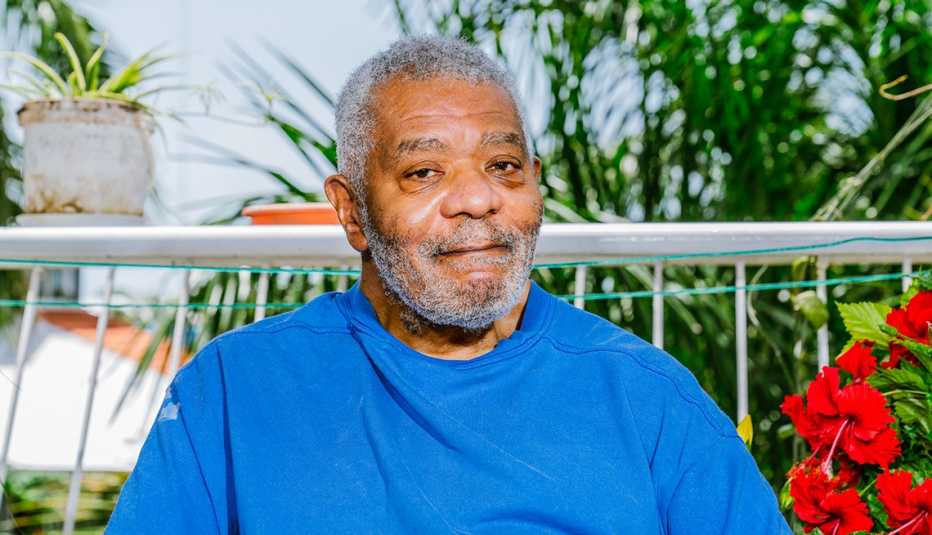AARP Hearing Center
The story of the first gay wedding in America is one that encompasses the fight for LGBTQ rights, a case before the highest court in the land and a remarkable relationship.
The issue of same-sex marriage first made its way to the U.S. Supreme Court in 1972, which at that time dismissed the case “for want of a substantial federal question,” thus establishing the precedent against legalizing same-sex marriage for decades to come.
The story of that first attempt to legalize marriage in the U.S. for couples of the same sex is documented in The Wedding Heard ’Round the World: America’s First Gay Marriage. Originally published in 2016 — on the heels of marriage equality becoming federal law — it tells the story of Michael McConnell and Jack Baker, who in 1970 became the first same-sex couple known to apply for a marriage license.
After the Minneapolis couple was denied their license, they filed a lawsuit and fought their way to the U.S. Supreme Court. As McConnell poignantly writes in the “Married Life” chapter of the book, excerpted below, “Looking back on what I call this ‘landmark indecision,’ it seems like a crying shame. The highest court in our country walked away from a priceless opportunity to champion human rights. So many hours of effort, so many dollars spent, and so many tears have been shed in the intervening years to establish marriage equality. All of that might have been spared if only the court had showed more courage in 1972.”
It would be 43 more years before marriage equality became federal law. On June 26, 2015, in Obergefell v. Hodges, the U.S. Supreme Court ruled that gay couples have a fundamental right to marry. In their verdict, the justices acknowledged the long struggle faced by McConnell and Baker that had preceded this landmark decision when they stated that “Baker v. Nelson must be and now is overruled.”
It was a moment that McConnell and Baker, by then both 73 years old and living a quiet life in retirement, savored. As McConnell writes in the epilogue to the 2020 reissue of the book: “After forty-three years, our country’s legal system had, at long last, caught up with the simple, logical idea that we proposed when we were young lovers.”
Enjoy an excerpt from The Wedding Heard ’Round the World: America’s First Gay Marriage, by McConnell and Baker, as told to Gail Langer Karwoski.


































































